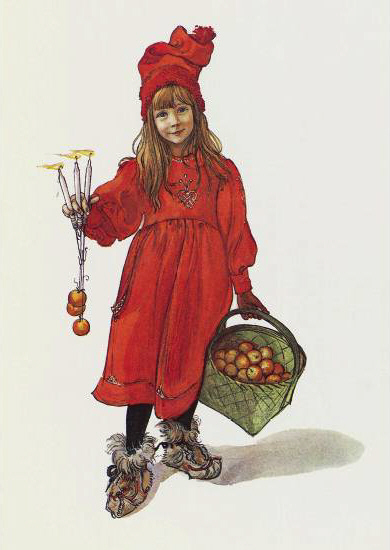stand

A w:Carl Larssonpainting of a girl standing.
Meanings
Verb
- To position or be positioned physically.
- To position or be positioned mentally.
- To position or be positioned socially.
- Of a ship or its captain, to steer, sail (in a specified direction, for a specified destination etc.).
- To remain without ruin or injury.
- To stop asking for more cards; to keep one's hand as it has been dealt so far.
Noun
- The act of standing.
- A defensive position or effort.
- A resolute, unwavering position; firm opinion; action for a purpose in the face of opposition.
- A period of performance in a given location or venue.
- A device to hold something upright or aloft.
- The platform on which a witness testifies in court; the witness stand or witness box.
- An area of raised seating for waiters at the stock exchange.
- A particular grove or other group of trees or shrubs.
- A contiguous group of trees sufficiently uniform in age-class distribution, composition, and structure, and growing on a site of sufficiently uniform quality, to be a distinguishable unit.
- A standstill, a motionless state, as of someone confused, or a hunting dog who has found game.
- A small building, booth, or stage, as in a bandstand or hamburger stand.
- A designated spot where someone or something may stand or wait.
- The situation of a shop, store, hotel, etc.
- Grandstand.
- A partnership.
- A single set, as of arms.
- Rank; post; station; standing.
- A state of perplexity or embarrassment.
- A young tree, usually reserved when other trees are cut; also, a tree growing or standing upon its own root, in distinction from one produced from a scion set in a stock, either of the same or another kind of tree.
- A weight of from two hundred and fifty to three hundred pounds, used in weighing pitch.
- A location or position where one may stand.
- An advertisement filling an entire billboard, comprising many sheets of paper.
Origin
- From Middle English standen, from Old English standan ("to stand, occupy a place, be valid, stand good, be, exist, take place, consist, be fixed, remain undisturbed, stand still, cease to move, remain without motion, stop, maintain one’s position, not yield to pressure, reside, abide, continue, remain, not to fall, be upheld"), from Proto-Germanic *standaną ("to stand"), from Pre-Germanic *sth₂-n-t-´, an innovative extended n-infixed form of Proto-Indo-European *steh₂-.
- Cognate with Scots stand ("to stand"), Saterland Frisian stounde ("to stand"), West Frisian stean ("to stand"), dialectal German standen ("to stand"), Danish stande ("to stand"), Swedish stånda ("to stand"), Norwegian standa ("to stand"), Faroese standa ("to stand"), Icelandic standa ("to stand"), Gothic 𐍃𐍄𐌰𐌽𐌳𐌰𐌽, Russian стоя́ть ("to stand"). Also from *steh₂-: Irish seas, Latin stare, Lithuanian stóti, Old Church Slavonic стояти, Albanian shtoj ("to increase"), Ancient Greek ἵστημι ("to put"), Avestan 𐬵𐬌𐬱𐬙𐬀𐬌𐬙𐬌, Sanskrit तिष्ठति. From the related Proto-Germanic *stāną ("to stand"): West Frisian stean, Dutch staan, German stehen, Danish stå.
Modern English dictionary
Explore and search massive catalog of over 900,000 word meanings.
Word of the Day
Get a curated memorable word every day.
Challenge yourself
Level up your vocabulary by setting personal goals.
And much more
Try out Vedaist now.

